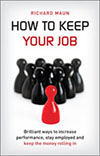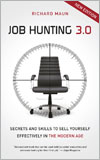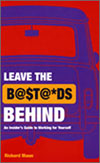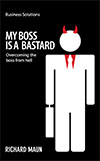better business blog
Tips and stories to add value to you and your organisation

The Essential Numbers Quiz
I’m a words guy really. Always was. As a child I loved learning new words and shoe-horning them into conversations. Not always with great success though. I distinctly remember a dinner conversation when I proudly used a new word and was soundly told off for it.
Apparently, describing your sister’s juvenile joke as cr*p, when you’re 9 years old, is not a laughing matter. Who knew that was a swear word? Not me.
Luckily I’ve learned all the other swear words now so know what not to use when in polite society.
Numbers always foxed me. They seemed like villains, that wouldn’t stay still and refused to be easily manipulated. For example, I’d find it easy to spell ‘receive’ (i before e except after c) and ‘parallel’ (one r and two l’s), but multiplying 18 by 14 or dividing 525 by 75 took a while to master.
(Answers at the foot of the page, for those of you trying to work these out in your head. Good for you for not cheating with a calculator, like I did).
What surprises me is that I’ve also become a numbers guy in business. Not complicated numbers, you understand, but simple honest ones.
I like business numbers and have been fortunate to have studied finance and statistics as part of my ongoing CPD.
Without the numbers in our head, we are working blind. Would you drive through a 30mph zone and past a speed camera without a speedo or rev counter in your car? Probably not.
Amazingly this is exactly what many people do in business. This is bad form. If we’re in business then we absolutely have to know the numbers. We don’t have to like the numbers, we don’t even have to work them out (that’s why God invented accountants), but we do have to know them.
Put simply, not knowing them is at best careless and at worst irresponsible.
And on that jolly note, now everyone is all fired up with numerical enthusiasm, here’s the quiz for you.
Pen and paper ready? Answer honestly and do it from memory. Knowing the numbers means having them in our head for instant recall, not having them parked on a spreadsheet that we rarely read.
You can round up or down to the nearest 100 or 1,000. Here goes…
Q1. How much cash does your business have in the bank today?
Q2. How much cash will it have at the end of this month and in six months time?
Q3. What is your year end net profit likely to be, after tax?
Q4. What is the total value of unpaid invoices?
Q5. How much cash do you have in a reserve account, for contingencies?
Q6. How much VAT are you likely to owe at your next statement?
Q7. How much tax are you likely to owe at year end and how much have you saved so far?
Aren’t these great questions! Annoying ones too, probably, for some of us.
I can answer all of them, to the nearest £1,000 as I always update my P&L forecast and cash flow forecast at the end of each month and/or when something significant changes in my business.
I like to know the impact of things. Income down? Delay that expenditure. Income up? Put some more cash into the reserve account.
I’m not perfect and I am diligent …and that’s the place to be.
And I’ve learned the hard way by managing a loss making business in my younger days. I did turn it round in the end, but counting the pennies and making tough decisions was an ‘education’ that’s helped me in my own business.
We all have to pay our dues!
How did you get on with the quiz? A score of 5/7 and above is pretty spiffing. 4/7 is okay for today. 3/7 or less means please diarise some number crunching this week.
I’m not a natural numbers guy and in business we have no choice. It’s like driving sensibly, we have to do it, or the law catches up with us eventually.
Have fun with numbers this week!
Next week: 3 Essential Business Card Tips
Answers: 18×14 = 252 // 525÷75 = 7
e-publishing
Click icon for details


recent posts
browse archive
books
Click cover to view details on Amazon

How to Keep Your Job
Brilliant ways to increase performance, stay employed and keep the money rolling in
Published 2011 Marshall Cavendish
208pp

Job Hunting 3.0
Secrets and skills to sell yourself effectively in the Modern Age
Published 2010 Marshall Cavendish
260pp

 RSS
RSS


